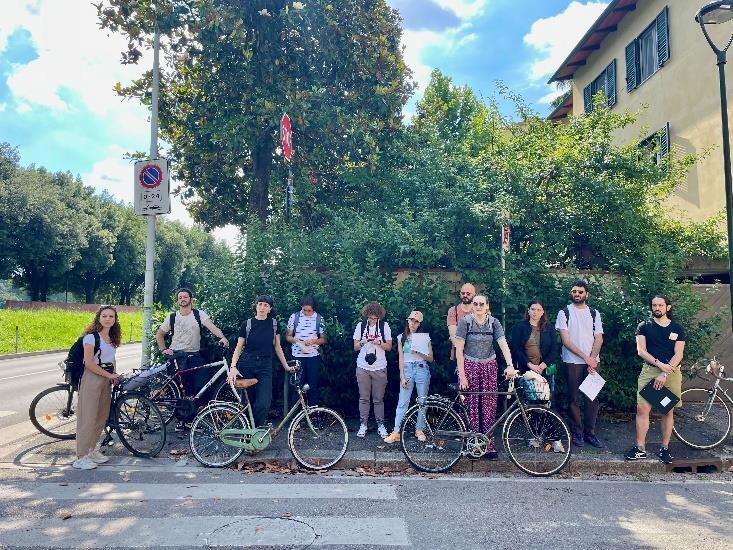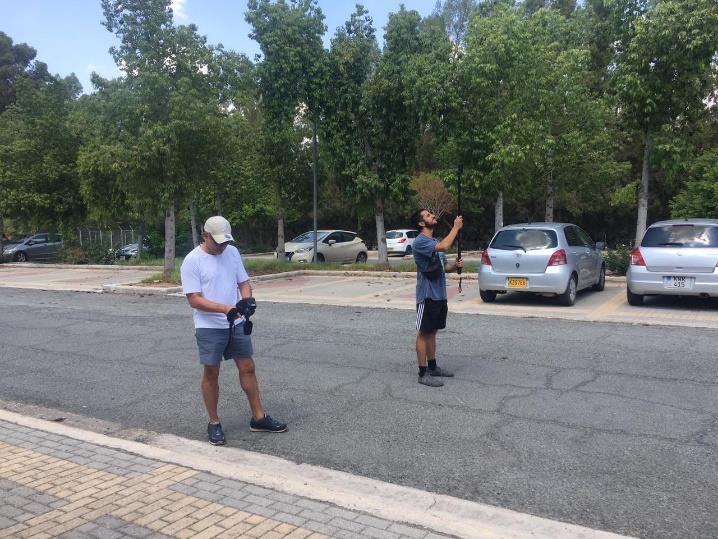




Welcome to the latest update from U-CARE, an innovative project co-funded by the European Union. This initiative is designed to address the pressing challenges of urban health and climate resilience through cutting-edge research, education, and cross-sectoral collaboration.
Here's a look at what U-CARE is all about and what we've accomplished so far!
Urban health is at the heart of sustainable city development. However, scattered evidence and delayed implementation of best practices are holding cities back from fully addressing the climate and health crisis. U-CARE is changing that by introducing the UrbanCare methodology, focusing on urban health research, neighbourhood diagnostics, and decision-making workshops.
Our main objectives are:
• Knowledge Transfer: Using case studies to demonstrate the effectiveness of the UrbanCare methodology.
• Urban Health Spatial Planning Platform: Developing a digital platform to support urban health initiatives.
• Capacity-Building & Training: Creating new academic modules to train the next generation of professionals in green labour markets.
The U-CARE project is working across four European cities Florence, Gothenburg, Berlin, and Nicosia on several critical initiatives:
• Urban Health Indicators: Tools to measure and improve urban living conditions.
• Mixed Methods Research: Investigating urban health issues through research on spatial inequity, urban heat, and more.
• Decision-Making Workshops: Facilitating collaboration between citizens, professionals, and policymakers to create solid action plans
• U-Care Web Platform: A user-friendly digital hub for urban health data.
• Databases: Building five databases covering key topics like urban heat and biotope loss

The thematic seminar “U-CARE: U-Care to battle climate change impacts on urban ecosystems and health across different European climate zones” took place in July 2024, as part of the U-CARE research project. The seminar was aimed at students from the Faculty of Architecture of the University of Florence, with the participation of the Municipality of Florence.
The focus of the study was District 4 (Quartiere 4) in Florence In particular, the urban areas of Isolotto, Legnaia and Soffiano, which represent a significant context for examining current issues such as environmental quality, resilience to climate change and citizens' health. The study addressed the topic of urban regeneration through an investigation methodology based on the adoption of digital analysis and simulation tools that help develop restorative design solutions capable of improving the social, environmental and functional conditions. Several experts also participated in this field visit, among them Dr. M. Scamporrino, an urban planner specialised in sustainable mobility, guided the participants through the Jane Walks, offering them an in-depth view of the neighbourhood.
Furthermore, Arch. A. Valera Sosa, professor at TU Berlin and researcher at the Building Health Lab, introduced the Urban Care methodology to analyse urban space, with a specific focus on walkability, heat islands, stormwater runoff and biotope loss, including practical demonstrations of the thermographic survey. The exploratory phase concluded with a significant meeting at the study area, where Mirko Dormentoni, president of Q4, presented the challenges and opportunities of Q4 together with the current and future projects for redeveloping green and public spaces.


In early September 2024, researchers working on the U-CARE project at the SURF Lab of the University of Cyprus, led by Alvaro Valera Sosa of Building Health Lab conducted fieldwork around the Makareio Hospital in Nicosia, Cyprus. Data was gathered via 360degree GoPro photography to capture images of selected routes around the hospital, and via thermal photography to collect information about heat in the urban area.
The data from the fieldwork will be processed to assess how urban infrastructure in the area impacts health and the environment. This data will be embedded into an immersive viewer, where you will be able to virtually navigate the area and access the findings of this study.

The success of U-CARE hinges on the strength of our partners:
• Technische Universität Berlin (Germany) – Project Coordinator
• BHL Building Health Lab UG (Germany)
• University of Cyprus (Cyprus)
• Università degli Studi di Firenze (Italy)
• Chalmers University of Technology (Sweden)
• RESET Ltd (Cyprus)
This partnership brings together some of Europe's leading institutions in urban planning, public health, and climate research to drive impactful results.

We believe that lasting change comes from collaboration. That’s why U-CARE focuses on engaging:
• Students & Academics: New learning modules are being developed for students in architecture, public health, and environmental sciences.
• Professionals & Policymakers: Decision-makers and urban planners are joining our workshops to explore how they can help create healthier urban environments.
• Citizens: Particularly vulnerable groups, are central to our mission of addressing spatial inequities in health.
Looking ahead, U-CARE will continue developing its urban health platform and finalize plans for its decision-making workshops in Florence, Gothenburg, Berlin, and Nicosia. Stay tuned for more updates on these exciting events!
U-CARE is funded by the European Union. The views and opinions expressed are those of the project authors and do not necessarily reflect the official position of the EU or the European Education and Culture Executive Agency (EACEA). The EU and EACEA cannot be held responsible for the content.
For more information about the project, visit https://ucareproject.eu/ or follow us on Instagram, Facebook and LinkedIn.